13 Tips For Caring For A Pregnant Cat
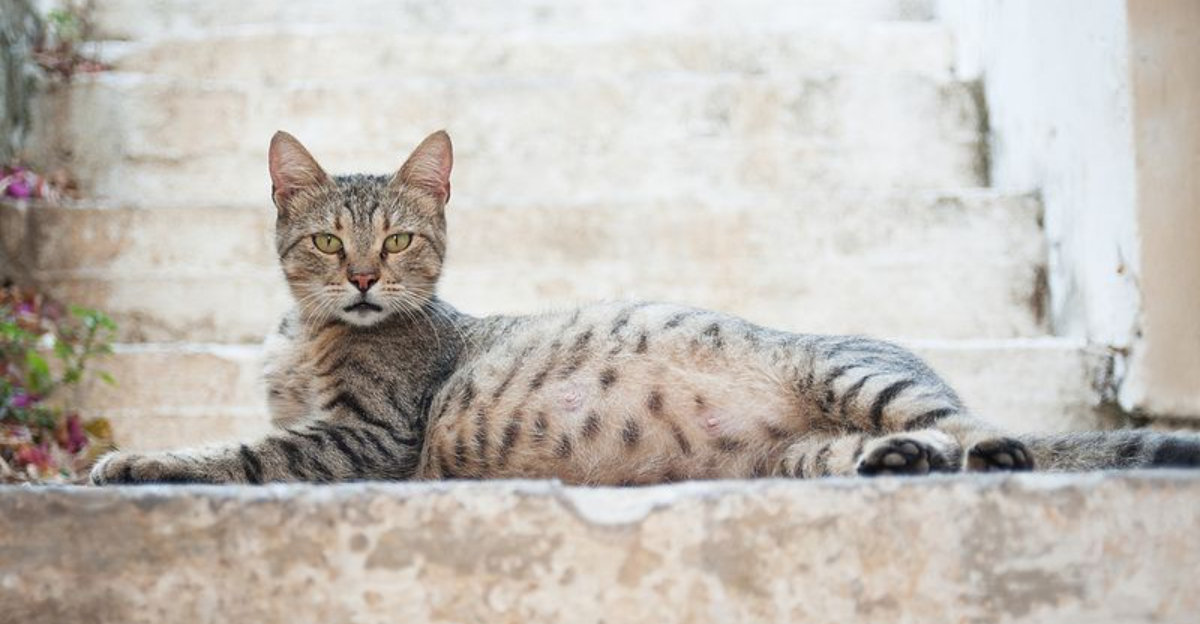
Discovering your feline friend is expecting kittens brings excitement and responsibility. Pregnant cats, or queens, need special attention during their roughly 63-day gestation period to ensure both mama and her future kittens stay healthy.
Whether you’re a first-time cat parent or experienced with feline pregnancies, these practical tips will help you provide the best care during this special time.
1. Schedule A Veterinary Check-up
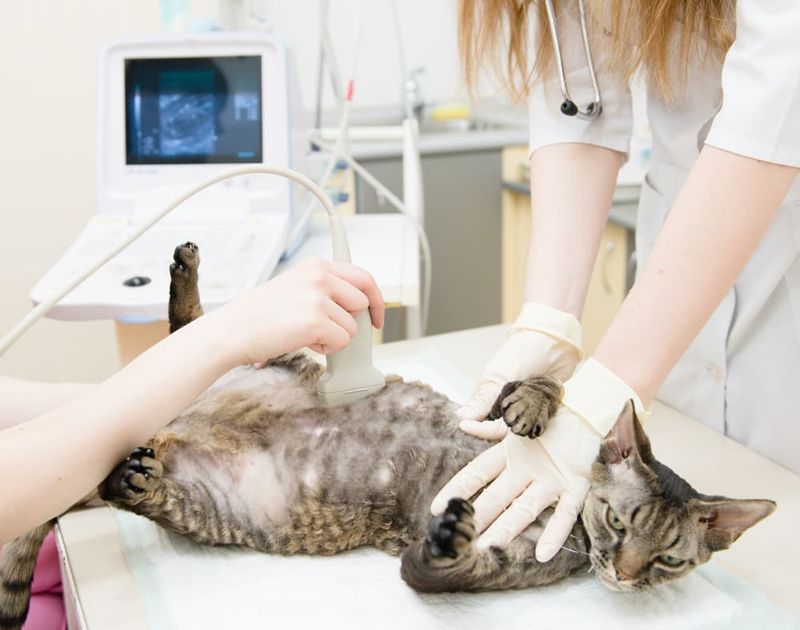
Booking a vet appointment should top your priority list once you suspect your cat is pregnant. Your veterinarian can confirm the pregnancy, estimate delivery dates, and check for potential complications.
They’ll also help determine how many kittens to expect and provide guidance tailored to your specific cat’s needs. This initial check-up establishes a baseline for monitoring her health throughout pregnancy.
2. Upgrade To Premium Nutrition
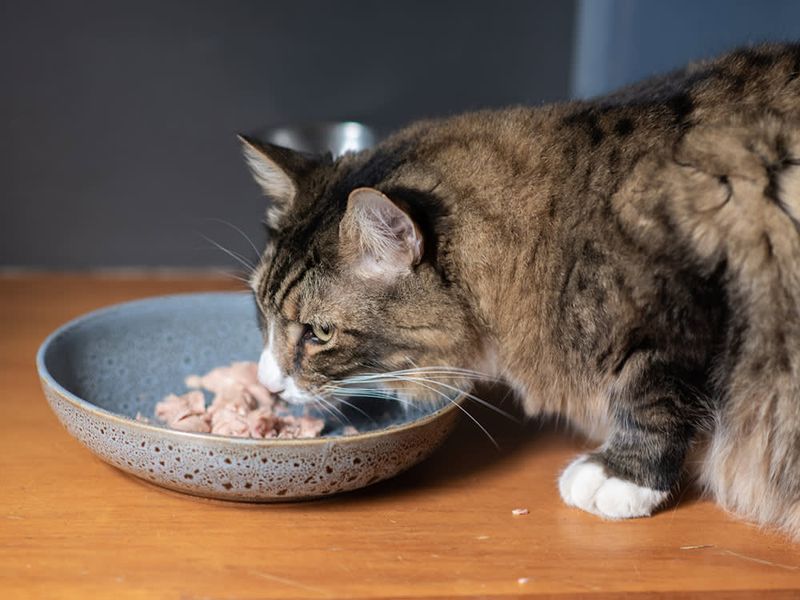
Food becomes incredibly important when your cat is eating for multiple little lives. Switch to high-quality kitten food – yes, kitten food!
The extra nutrients support developing babies and mom’s changing body. Feed smaller, more frequent meals as pregnancy progresses since her stomach gets compressed by growing kittens. Always keep fresh water available, as pregnant cats need extra hydration.
3. Create A Cozy Nesting Box

About two weeks before due date, prepare a quiet nesting box in a low-traffic area. Line a cardboard box or pet carrier with soft, washable blankets or towels that provide comfort without snagging tiny claws.
Make sure the box has low sides for mama to enter easily but high enough to keep newborn kittens contained. Show her the box but don’t force her to use it – she’ll decide when it’s time.
4. Monitor Weight Changes Carefully
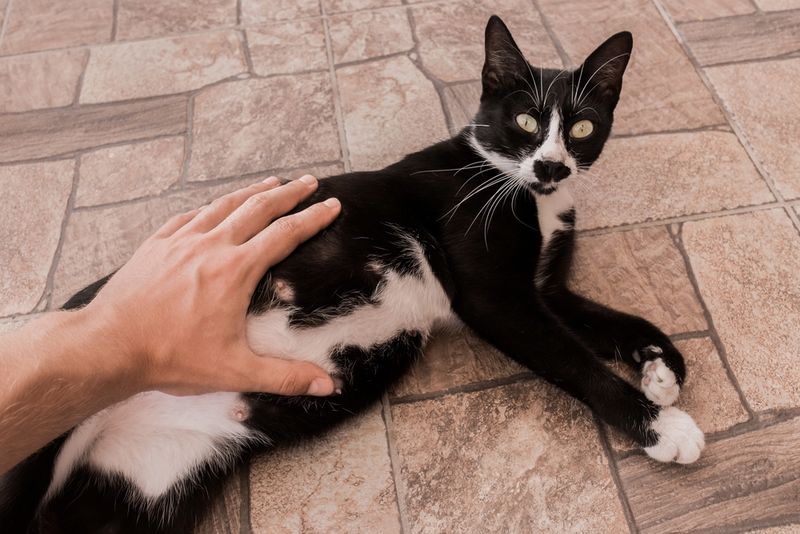
Healthy weight gain signals proper development of the kittens. Most cats gain about 2-4 pounds during pregnancy, depending on litter size and the cat’s starting weight.
Sudden weight loss or excessive gain warrants immediate veterinary attention. Keep track by weighing her weekly on the same scale at the same time of day. Gradual, steady increases show things are progressing normally.
5. Modify The Litter Box Setup
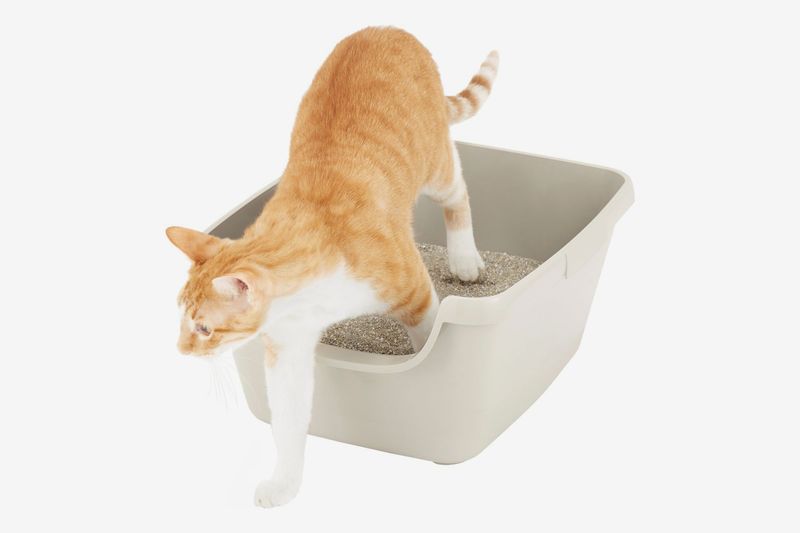
Your expectant queen needs easier bathroom access as her belly grows. Switch to a litter box with lower sides if you haven’t already, making entry and exit comfortable for her increasingly awkward movements.
Keep it scrupulously clean, scooping multiple times daily. Place additional boxes around your home so she’s never far from relief. Unscented litter minimizes respiratory irritation for both mom and future kittens.
6. Limit Strenuous Activity
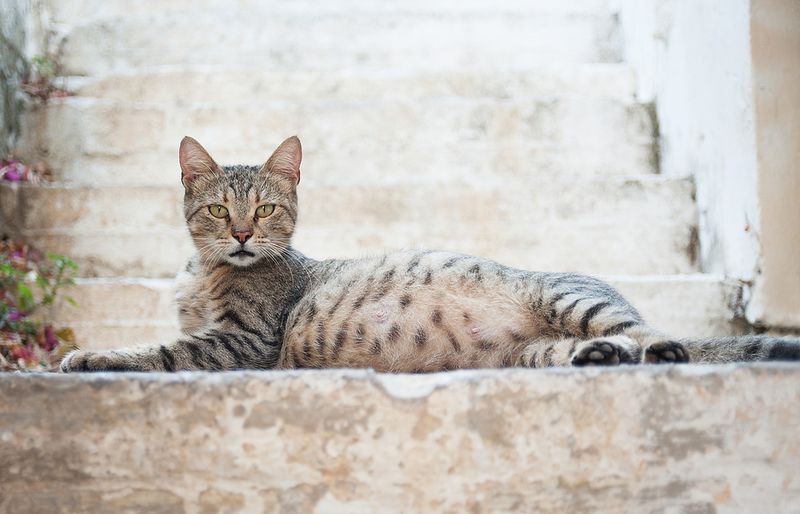
Climbing, jumping, and rough play might endanger your pregnant cat and her developing kittens. Discourage leaping onto high surfaces by providing stepping stools or ramps to her favorite perches.
Don’t worry about normal activity – moderate exercise helps maintain muscle tone for delivery. Just create safer pathways around your home and gently redirect her from risky behaviors like countertop jumping or squeezing into tight spaces.
7. Recognize Labor Warning Signs
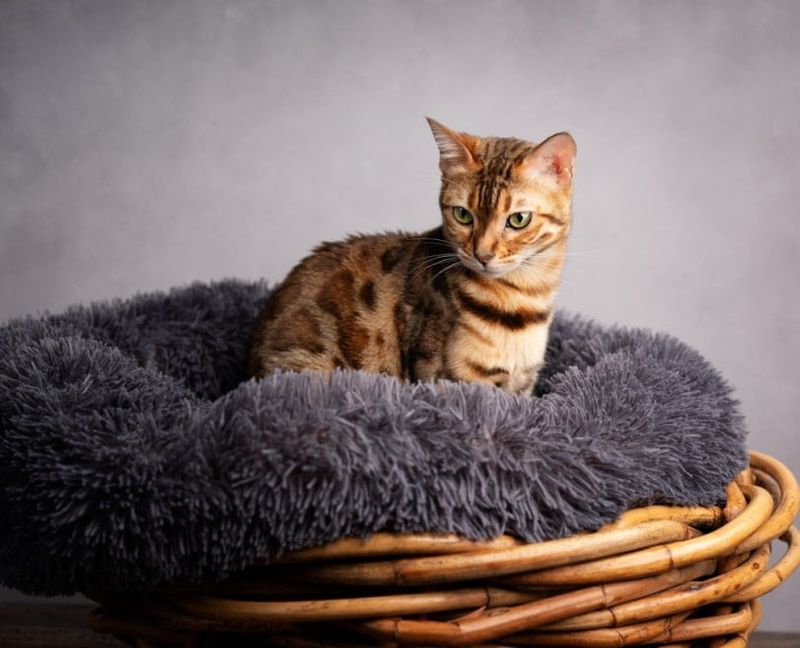
Familiarize yourself with birth signals so you’ll know when kittens are coming. Watch for restlessness, pacing, excessive grooming of the genital area, and nesting behaviors like scratching or rearranging bedding.
Temperature drops below 100°F often indicates labor within 24 hours. Keep a digital thermometer handy for checking. Most cats handle delivery wonderfully alone, but stay nearby in case complications arise.
8. Prepare An Emergency Kit
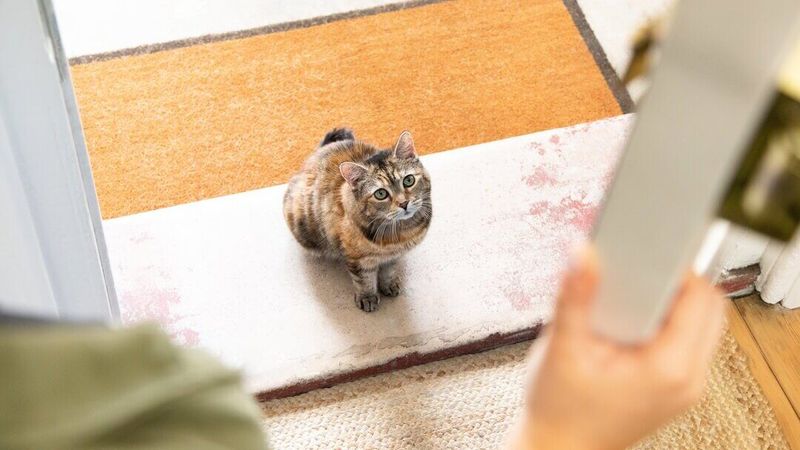
Hope for smooth sailing but prepare for stormy weather with a simple emergency kit. Include clean towels, sterile scissors, unwaxed dental floss for tying umbilical cords if needed, and iodine for cord stumps.
Add your vet’s emergency number and the location of the nearest 24-hour animal hospital. Having these supplies ready provides peace of mind, even if your queen handles everything perfectly on her own.
9. Maintain Consistent Handling

Hormonal changes might make your normally affectionate cat seem standoffish or unusually clingy. Follow her lead on interaction – never force attention if she’s seeking solitude.
Continue regular gentle petting if she enjoys it, focusing on her head and shoulders rather than her sensitive abdomen. This maintains your bond while respecting her changing comfort levels. Some cats seek extra reassurance while others prefer space during pregnancy.
10. Keep Stress Levels Minimal
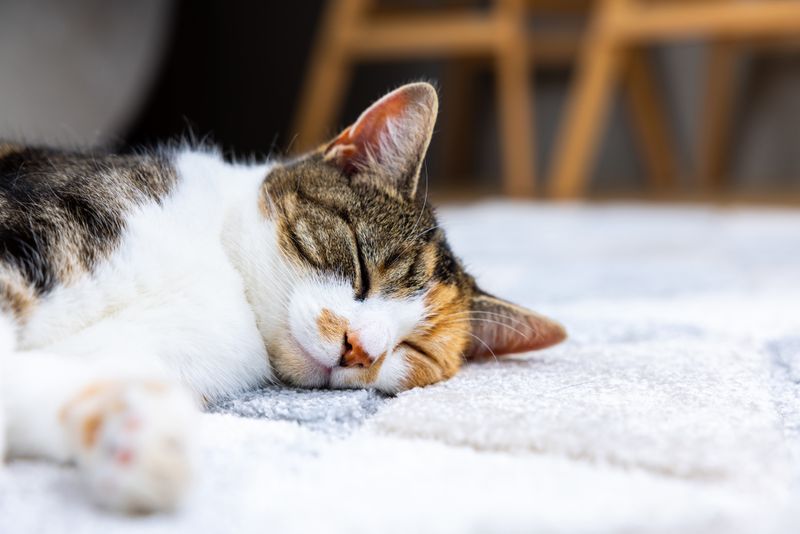
Stress affects both mother and developing kittens, potentially causing complications. Maintain regular routines and avoid introducing new pets, moving furniture, or hosting loud gatherings during her pregnancy. Create quiet retreats throughout your home where she can escape household hustle.
Soft music or pheromone diffusers can create calming environments. Remember that your own calm demeanor helps reassure your sensitive pregnant companion.
11. Separate Multiple Cats If Needed
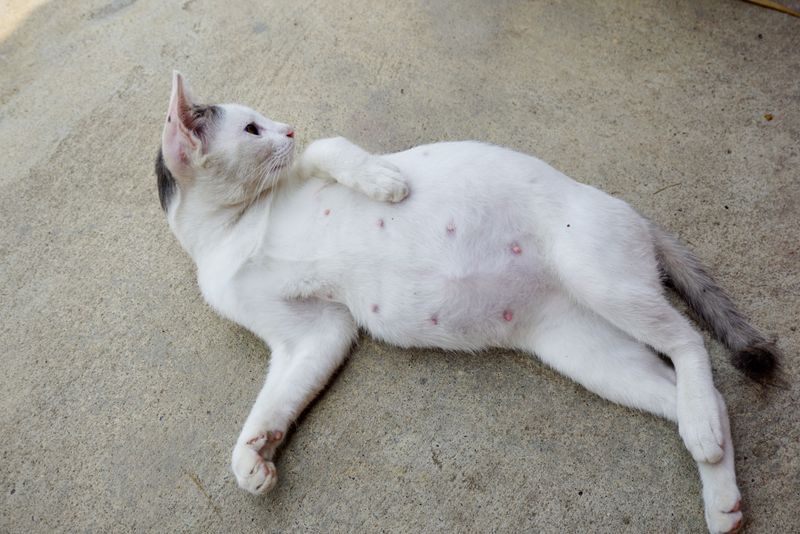
Even friendly feline housemates might become sources of stress for your pregnant queen. Watch for signs of tension like hissing, hiding, or resource guarding, which indicate your pregnant cat needs space.
Consider temporary separation if other cats show excessive interest in her belly or nesting area. After birth, introduce other pets gradually to the new mother, always prioritizing her comfort and the safety of newborn kittens.
12. Watch For Pregnancy Complications
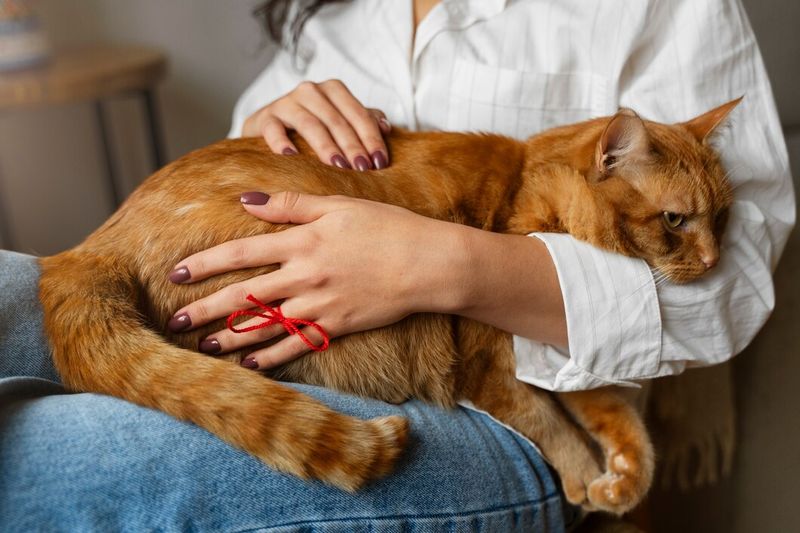
Knowing warning signs could save lives. Contact your vet immediately for fever, lethargy, loss of appetite, vomiting, discharge, or excessive thirst. These might indicate serious conditions requiring prompt attention.
During later stages, any straining without producing kittens within an hour needs emergency care. Trust your instincts – you know your cat best, and quick action during complications makes all the difference in protecting mother and babies.
13. Prepare For Post-Birth Care
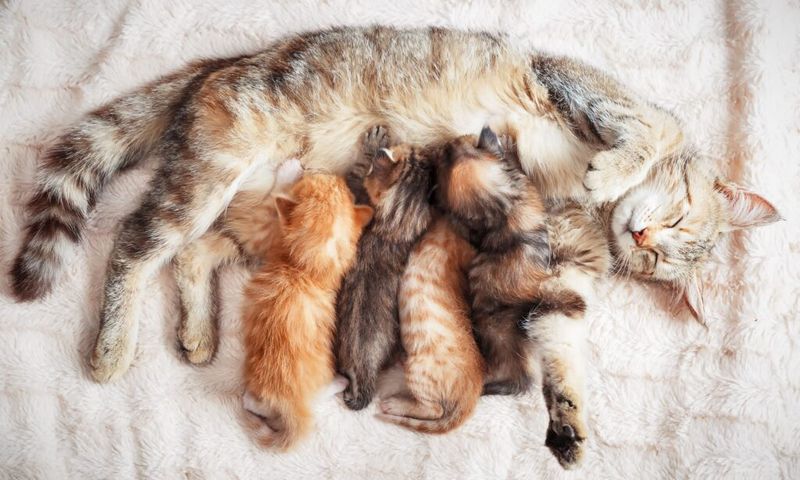
After delivery, your new mama needs exceptional nutrition to produce milk. Continue feeding high-quality kitten food in increased amounts – nursing cats can require triple their normal calories!
Check her frequently for signs of mastitis (breast inflammation) or metritis (uterine infection). Provide a calm environment where she can nurse undisturbed. Most importantly, enjoy this special time – those tiny kittens grow incredibly fast!






